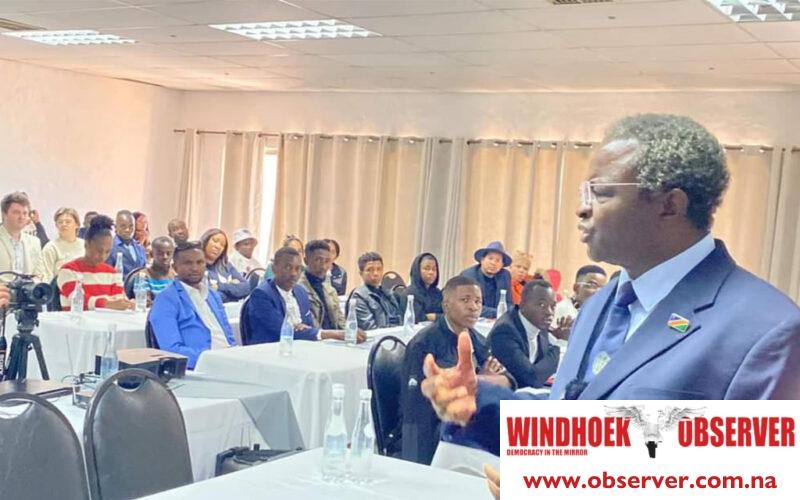Stefanus Nashama
The Independent Patriots for Change (IPC) has begun the process of selecting candidates for seats in the National Assembly next year.
The party’s national spokesperson, Immanuel Nashinge, told the Windhoek Observer on Monday that the selection process started over the weekend at the branch level and that the party is now preparing for the selection of candidates at the constituency level.
“Yes, we have started with identifying and selecting our candidates from the grassroots level, because we are a party that upholds the principles of democracy, and that is what matters,” he said.
Nashinge said the process is open to all members, provided that they meet the requirements set out by the party.
According to him, all branches countrywide have finished selecting candidates.
He explained that each branch only selected two candidates that would contest at the constituency level.
According to Nashinge, the constituency contest will take place on 24 August and only four contestants from each constituency will go to the regional level.
“Each constituency is expected to send four candidates that will contest at the regional level at the end of this month. Once we are done with the regional selection, each region will elect eight candidates that will go to the national level,” he said.
Nashinge said that the process is going well so far.
“Democracy is highly considered during the selection process, and all members are encouraged to participate. It is a free and fair competitive democratic contest. In the IPC, we respect the rules of law and democracy is practised at the highest level,” he said.
He added that young people are mostly targeted to participate and ensure the future of the country.
According to Nashinge, the IPC is seeking 96 candidates for parliamentary seats at the national level.
The National Assembly has 104 seats, including the eight members appointed by the president.
Political analyst Sakaria Johaness said the selection of candidates at the grass-roots level means opening doors to everyone, not just individuals.
“By doing so, IPC is not just interested in selecting candidates but also identifying candidates who are well exposed to what is on the ground,” he said.
Johannes said that with such a process, IPC is also upholding the principles of democracy.
“That is what we call participatory democracy and I wish all political parties could do the same,” he said.
Johannes claims that because they are on the ground, people at the grassroots level have different perspectives on what the government should do.
He further said such people can understand issues affecting communities better than those at the top.




